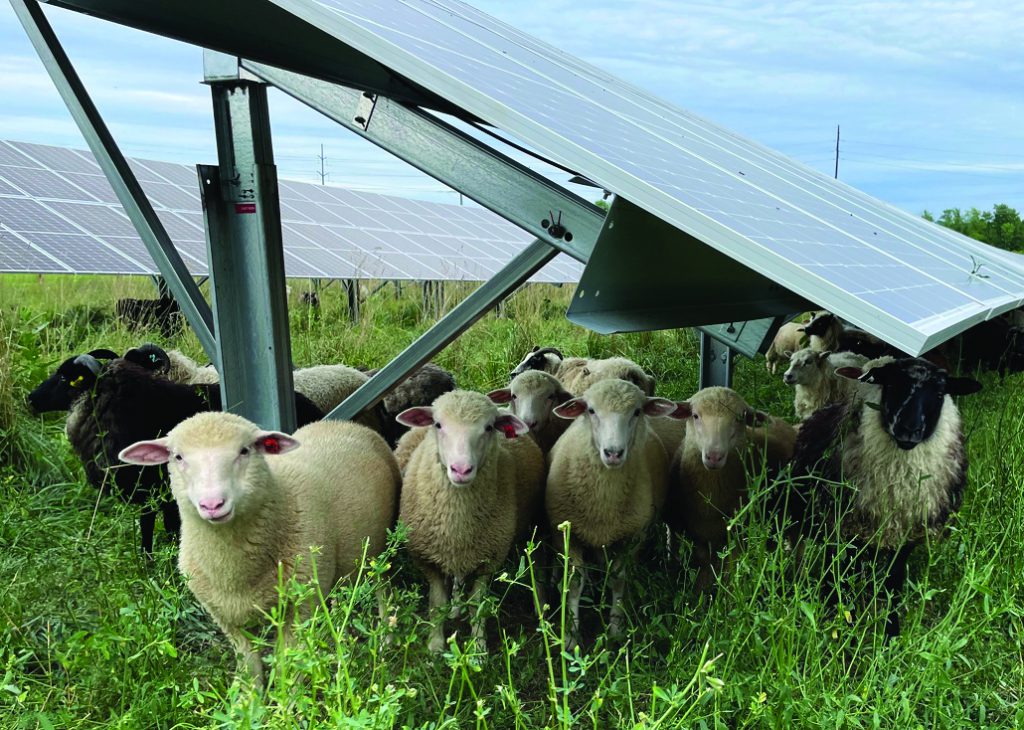
Courtesy ANCA
The Adirondack North Country Association (ANCA) announced the return of its Clean Energy Conference.
Presented in partnership with the Mohawk Valley Clean Energy Team, this year’s conference will explore community incentives, opportunities and challenges related to recent state and federal policies.
Warren and Washington counties are part of ANCA.
With a focus on how small and rural communities can help advance a statewide transition to clean energy while preserving their values and character, the conference will convene clean energy experts, advocates and contractors, as well as local community leaders.
It will be held June 1 and 2 at the Irish Cultural Center of the Mohawk Valley in Utica.
“In alignment with ANCA’s aim to elevate the voices of North Country communities, this year’s Clean Energy Conference will focus on the unique concerns and needs of our hamlets, villages, towns and counties—and how they can maximize emerging opportunities as new legislation rolls out across the state,” said ANCA energy circuit rider and conference organizer Jennifer Perry.
Through a variety of presentations, workshops and roundtable sessions, guest speakers will share success stories and address ways rural communities can benefit from recent policies like New York’s Climate Leadership and Community Protection Act, the U.S. Inflation Reduction Act and the federal Bipartisan Infrastructure Law, as well as challenges that may arise as these policies are implemented across the region.
“We are honored to partner with the Mohawk Valley Clean Energy Team for this year’s conference,” Perry said. “Our extensive networks of energy partners and regional leaders will provide valuable insight for community members interested in learning more about these new policies and how we can work together to build a clean energy future that works for all.”
The Mohawk Valley Clean Energy Team is made up of staff from Mohawk Valley Economic Development District Inc. (MVEDD) and the Otsego County Conservation Association who work with communities in New York’s Mohawk Valley to help them become more energy efficient and sustainable.
“We’re excited about working with ANCA on the Clean Energy Conference,” said Amanda Kaier, clean energy communities coordinator for MVEDD. “It is a great opportunity to collaborate so we can better serve our communities, our region and the industry, while re-energizing the creative and innovative ideas that help move clean energy projects forward.”
Conference topics include stakeholder and partner engagement, equity and justice in project design and community outreach, community benefit from large-scale renewables, community-scale incentives and success stories, updates from government and nonprofit groups, building and transportation electrification, electric grid upgrades, carbon sequestration, localizing electricity supplies, and more.
The conference will also provide networking opportunities with contractors, service providers, nonprofits, government agencies and others working to expand clean energy initiatives across New York state.
A Thursday evening reception at the recently constructed Irish Cultural Center will feature Utica cuisine and drink. A raffle of local products and experiences will take place on Friday afternoon.
Registration costs $150. Municipal staff may attend at a reduced rate. Those interested can email events@adirondack.org for a discount code. Participants who find the cost of registration or travel to be a barrier are invited to inquire about financial support.
To learn more and register, visit www.adirondack.org/clean-energy-conference. Questions about the conference may be directed to Jennifer Perry at jperry@adirondack.org or 518-891-6200.
ANCA is an independent, nonprofit corporation with a transformational approach to building prosperity across northern New York. Using innovative strategies for food systems, clean energy, small businesses, and equity and inclusion, ANCA delivers targeted interventions that create and sustain wealth and value in local communities.
ANCA’s region encompasses 38 percent of the geography of the state and is home to 1.26 million people living in 255 small towns and 14 small cities. This northernmost part of the state benefits the whole Northeast as a renewable energy exporter: over 95 percent of the electricity generated in the region is from renewable sources; as a major food producer, with agricultural products accounting for close to $1 billion in market value annually; and its long-term globally recognized success in sustaining wild places and rural quality of life in an increasingly urbanized world.
